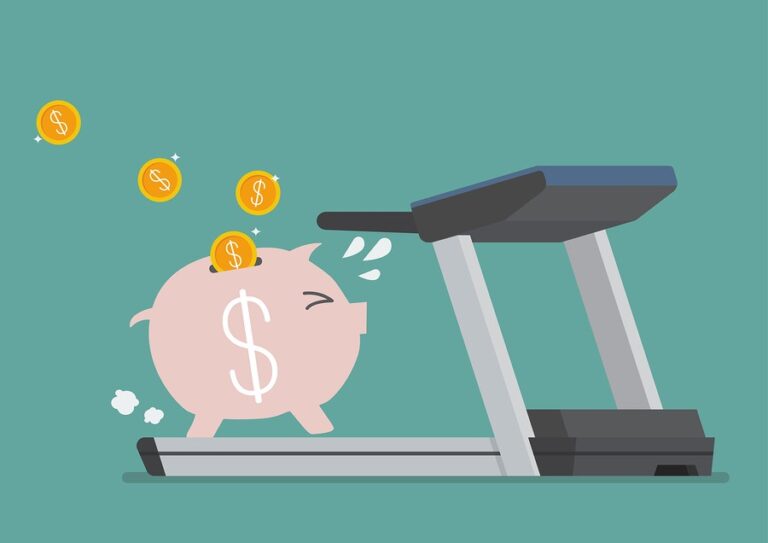Difficult times are no walk in the park and can be overwhelming. You might have lost your job, broken up from a relationship, or suffered an illness. Healing from any impactful life event can affect your mental health. It might devastate you and steer you into self-doubt and insecurity. However, with the right mindset, one can successfully get out of these complex phases of life.
Healing from such phases is a long-term process that can be frustrating and tiring emotionally and physically. However, nothing can stand in your way once you’ve decided to recover from these challenging phases.
The goal is to understand that little changes will go a long way. Of course, they will take time, but you can get through them and live a happy life through motivation and determination. Hence, the following practices will help you get through tough times.
1. Know you’re not alone

Going through a difficult phase can feel lonely at times. You might carry so much emotional baggage that you want to release. It is, therefore, essential to remember that you are not alone on this journey. Reach out to your family and friends and let them know how you feel and what you want from life.
Often when people are lonely, they fall into the rut of addiction. Remember, substance abuse will never help you; it can negatively impact your health. It is easier to get out of the situation early on, so don’t hesitate to seek the help of a professional. Rehab and treatment facilities like Serenity At Summit provide dual diagnosis treatment, identifying and treating co-occurring disorders. A therapist at the facility will assist you in expressing your emotions and releasing stress, improving your mental clarity. Moreover, it boosts your self-esteem and builds self-acceptance.
You can also join a support group to meet like-minded people who will enhance your communication skills and help you grow from your experiences. When people resonate with you, you feel hopeful and inspired. Several support groups are available, such as mutual support groups, twelve-step self-help groups, and online support groups. You are free to join any support group you feel most comfortable with.
2. Patience is key
Learning how to be patient is crucial in challenging times. Patience is a skill that will aid you during your healing period and help you in every aspect of life. It is a vital skill that we all take for granted. Patience will help you see through your situations; help you understand others, and build stronger relationships. You will feel mentally and emotionally stronger if you practice patience regularly.
To reach your goals and aims, you must be diligent. Remembering that things will come to you at the right place and time is essential. Patience will help remove stress from your life and replace it with relaxation. It is a skill you can learn in a few different ways.
The best way to practice patience is by accepting yourself and your circumstances. Then, you can adapt it by identifying what promotes discouraging and negative thoughts in your mind. Once you recognize it, you can replace your bad ideas with more positive ones. Lastly, sustaining your sense of purpose and direction will help you be hopeful in your life.
3. Keep yourself busy

To get through a hard time, you must involve yourself in tasks that keep you busy. If you work and keep yourself engaged, your chances of falling back into poor thoughts will be slim.
During your tough time, you probably spent most of your time thinking about your problem and entirely absorbed by it.
You must find a replacement for all your time and strength during your healing journey. You can keep busy with a job or spend time on everything you’ve been stalling. For example, you can learn a new skill, like cooking or painting. You can learn a new language or travel to all the places you want to visit.
Another way to keep yourself busy is by spending time with your loved ones. You can reconnect with old friends or spend time with your children and family. Being with them will help you uplift your mood and be grateful for all the blessings you have in your life. Their presence will give you a sense of purpose and motivate you to be your best in life.
4. Eat better
It is no surprise that studies show that eating a high-quality diet helps protect our brains from stress. In addition, eating a nutritious diet is essential for a healthy life.
Sadly, most of us today consume a diet that lacks nutrition leading to many health problems. During challenging times, our appetite becomes low, or we surrender entirely to unhealthy food. Both are equaling damaging for us. Hence prioritizing a nutritious diet can aid you in many ways, such as stabilizing you emotionally, helping you focus better, and boosting your energy. In addition, it also aids the brain in learning healthier habits.
Furthermore, your diet should be a combination of macro and micronutrients. Macronutrients are the building block of your diet and consist of protein, fats, and carbohydrates. At the same time, micronutrients provide essential vitamins and minerals to our immune system.
Your diet should consist of high-quality food such as whole grain carbohydrates like oats and brown rice, protein like legumes, eggs, and quinoa, and fresh fruits like apples and strawberries. You should also include a wide variety of vegetables and nuts as they have zinc and magnesium, which are great for our immune system. Lastly, avoid bad habits such as consuming too much sugar and oily foods and eating at odd times.
5. Invest in a journal

Journalling our minds and thoughts is a great way to recover. Sometimes our minds become so stressed, and our heart becomes heavy that we have difficulty sharing them with others.
In moments like these, journalling can do wonders. Our thoughts in our minds are constantly running and jumbling up. However, the moment you write them on paper, you will understand them more clearly.
Letting your emotions out without the fear of judgment can help you stabilize your emotions quickly and efficiently. On the other hand, it will help you emit stress and increase your mood. Although journalling is excellent when you are stressed, it is something you can do daily. You can write about your day, how you felt and what you desire.
Additionally, you can keep a daily gratitude journal in which you write about for all the things you are grateful. It will help you see your circumstance from a broader perspective and help you count every blessing in your life. This skill will help you maintain a positive mindset and help you look forward to a better life.
Conclusion
Going through a difficult time can be challenging. At times you might feel overwhelmed and exhausted. Yet your determination and drive will bring you out of these trying times.
Having faith and believing in better days is a crucial part of it. Healing is possible for anyone, and one can establish an aspiring blissful life.
A few skills and techniques can help you emerge victorious from such times, such as allowing yourself to talk to others. Letting people know how you feel will help you feel lighter.
Another skill that everyone should practice is patience, as it can do wonders. In addition, keeping yourself busy with positive things and eating well will motivate you to build a better life. Lastly, journaling will help you free yourself from anxious and negative thoughts. Thus, these tips will help you build discipline and direction towards a healthier life.







